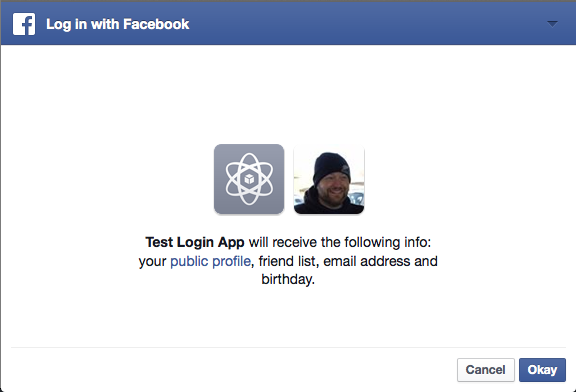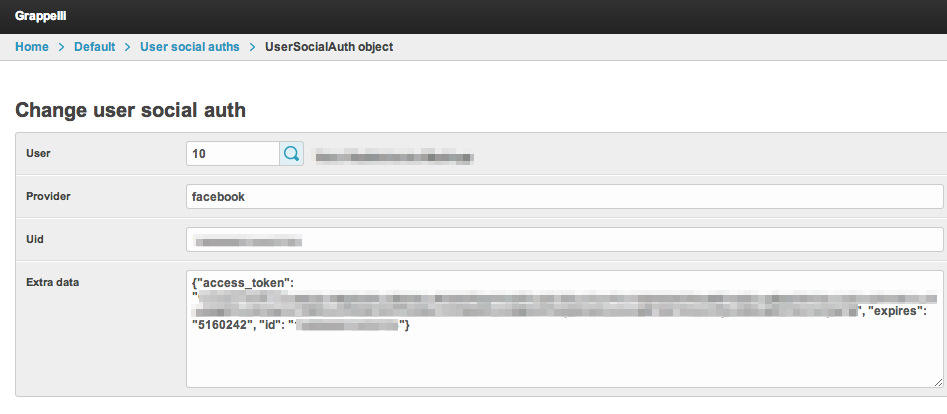Insights
How to retrieve Facebook extra info from Django
1 min read. Vera Mazhuga
Vera Mazhuga
Vera Mazhuga
Software Developer
When we use python-social-auth sometimes there is a need to obtain
some extra information from the Facebook about a registered user. Let's look at
how to retrieve a list of friends and their location.
To specify to which fields we need to have access, we need to add them to SOCIAL_AUTH_FACEBOOK_SCOPE list in settings.py file:
SOCIAL_AUTH_FACEBOOK_SCOPE = [
'email',
'user_friends',
'friends_location',
]
So when a user will try to log in to our website using his Facebook account,
he
will be asked
if our application can access his personal data:

In our case the app will ask him for his email, list of his friends and their location.
If the user agrees,
python-social-auth will create an instance of SocialUser clas with the following attributes:

As we can see, accessing
extra_data JSON, we can get a Facebook
token
will allow us to get the extra information we need via Facebook API.
Firstly, we get an
SocialUser object:
<pre lang="python">social_user = request.user.social_auth.filter(<br/> provider='facebook',<br/>).first()<br/></pre>
Since we got it, we can sent a GET request to Facebook API, passing
the user's
uid, access token and a list of fields we want to obtain:
if social_user:
url = u'<a href="https://graph.facebook.com/{0}/'">https://graph.facebook.com/{0}/'</a> \
u'friends?fields=id,name,location,picture' \
u'&access;_token={1}'.format(
social_user.uid,
social_user.extra_data['access_token'],
)
request = urllib2.Request(url)
The API returns us a JSON with the data we requested:
{
"data":[
{
"id":"uid",
"name":"John Doe",
"location":{
"id":"id",
"name":"Bogotá, Colombia"
},
"picture":{
"data":{
"url":"avatar url",
"is_silhouette":false
}
}
}
]
}So now we can load it co a Python dictionary:
friends = json.loads(urllib2.urlopen(request).read()).get('data')
for friend in friends:
location = friend.get('location')
# do somethingWritten by Vera Mazhuga
 Vera Mazhuga
Vera Mazhuga
Vera specializes in writing and maintaining code for various applications. Her focus on problem-solving and efficient programming ensures reliable and effective software solutions.

